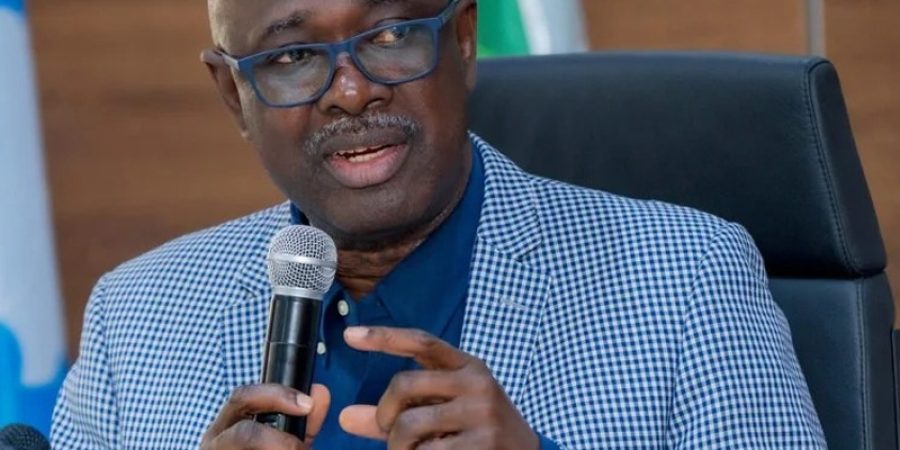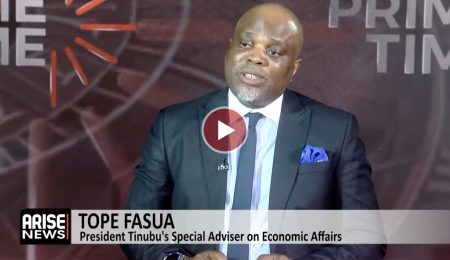The Minister of State for Petroleum Resources (Oil), Senator Heineken Lokpobiri, has reiterated the commitment of the federal government to providing globally competitive incentives for deepwater oil operations in the country.
Lokpobiri in a statement by his Special Adviser on Media and Communication, Nneamaka Okafor, noted that Nigeria has contributed to send a clear message to the global oil community that the oil and gas landscape has changed and the country is open for business.
Speaking at the Engineering, Procurement and Construction (EPC) deepwater investment roundtable in London organised by the Oil Producers Trade Section (OPTS), the minister called on major EPC companies to return, assuring them that previous concerns had been addressed through bold reforms and investor-focused policy shifts.
“When we say Nigeria is open for business, we’re not making a statement of intent, we’re pointing to the reforms we’ve implemented, the policies we’re enacting, and the partnerships we’re building. The landscape has changed, and this can be confirmed directly from the IOCs, who are members of the OPTS, who are already seeing the results,” the minister stated.
He acknowledged that many EPC firms had scaled down or exited Nigeria due to legitimate challenges in the past, such as contracting inefficiencies, regulatory ambiguity, security issues, and fiscal uncertainty.
“But those reasons no longer exist. Through the Petroleum Industry Act (PIA), we have streamlined fiscal terms, strengthened regulatory clarity, and committed to project security in partnership with the Nigerian Navy and other security agencies,” Lokpobiri noted.
A key highlight of the event, according to the statement, was the minister’s strong appeal to International Oil Companies and deepwater operators to continue making Final Investment Decisions (FIDs).
“The EPCs will not return if there are no projects,” he stressed. “And there can be no projects if operators are not investing. I want to thank those who are already leveraging what the government is doing, but we must do more. The projects must flow for the EPCs to come back,” he added.
To this end, the minister reaffirmed Nigeria’s commitment to providing globally competitive incentives for deepwater operations.
Under the PIA, Lokpobiri stated that these include: Reduced royalty rates for deep offshore production, ranging from 5 per cent to 7.5 per cent depending on water depth, while cost recovery limits have been removed, allowing companies to recover full development costs before profit sharing.
Besides, he mentions tax credits and allowances for frontier exploration; contract sanctity and investor protection mechanisms, ensuring long-term stability as well as streamlined approvals and shorter contracting cycles, which are now under active review to reduce delays.
Importantly, Lokpobiri made it clear that these incentives will not be limited to the IOCs alone but will also extend to the EPC contractors who execute these technically demanding projects. “These giant EPC companies, who once left, are exactly the kind of players who can thrive in deepwater.
“The same way we have fine-tuned incentives for operators, we will ensure those benefits are extended to EPCs, because without the EPCs, these projects cannot be delivered,” he declared.
Lokpobiri also highlighted the size and attractiveness of Nigeria’s deepwater basin, calling it “a massive space of opportunity.” He encouraged EPC firms to “look again” at Nigeria, not through the lens of the past, but through the progress already made and the vast potential still ahead.
“The government is not just committed; we are deliberate. We are removing barriers, incentivising performance, and building partnerships that last. But we need you, your expertise, your technology, your capacity. Let us do this together,” Lokpobiri concluded.
According to the statement, the roundtable ended with a strong commitment between the government, EPC contractors, and deepwater operators, reinforcing a unified resolve to reinvigorate the project pipeline, enhance local content, and ensure mutual prosperity.
Emmanuel Addeh
Follow us on:


